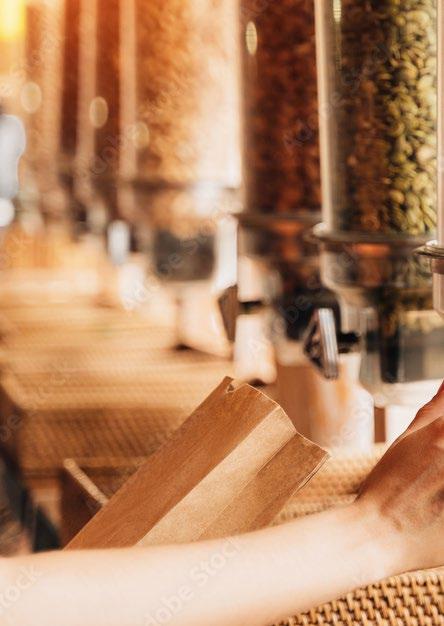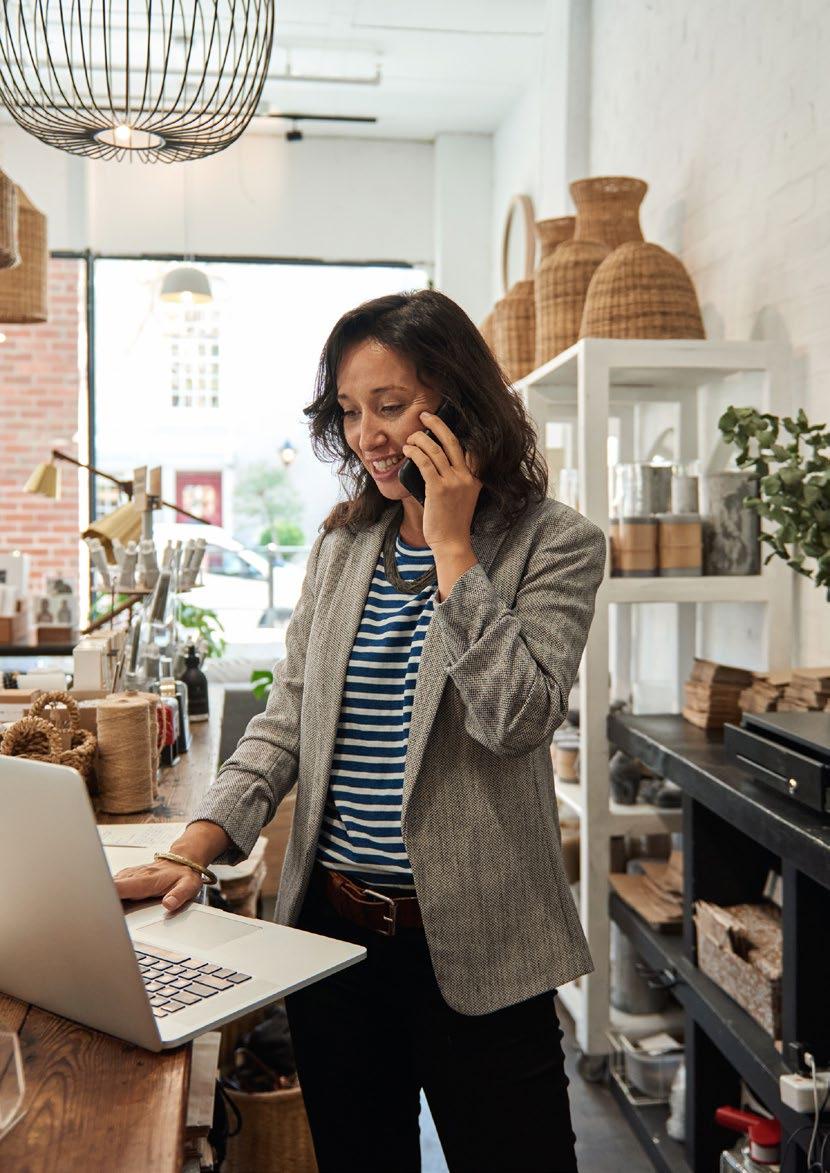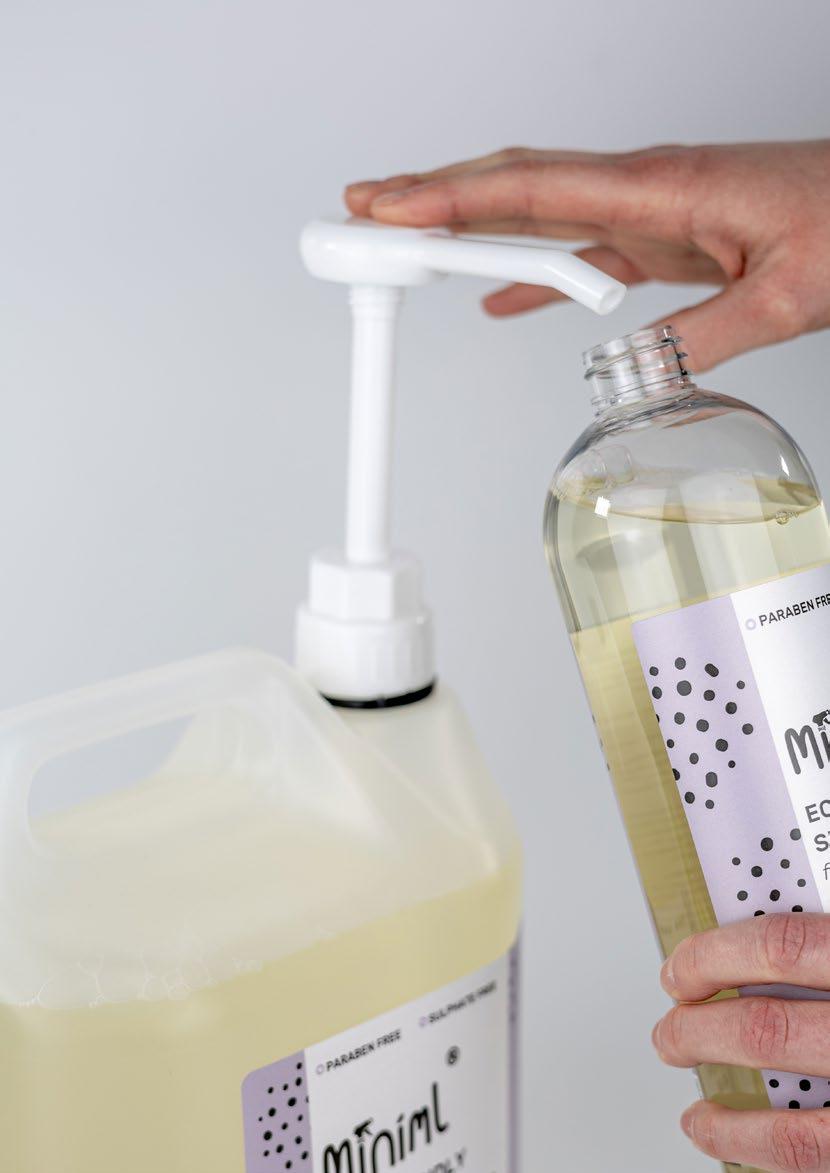Sustainability in Retail
A practical toolkit for a greener business

69% of UK consumers consider a “brand’s ethical and moral reputation” when making a purchase


A practical toolkit for a greener business

69% of UK consumers consider a “brand’s ethical and moral reputation” when making a purchase

It’s the trend that’s always in fashion and sits at the intersection of commercial and moral responsibilities, yet sustainability in retail is facing its toughest challenge yet as a result of unrelenting economic headwinds. Here, we provide practical tips and advice to improve your ethical and sustainable practices, demonstrate integrity to new and existing customers and make marginal gains during one of the most volatile times in retail history.
These findings from a recent American Express report¹ give a clear warning to retailers: now is not the time to lose focus on making advancements in ethical and sustainable business practices. Conscious that retailers are also under pressure to review their operating costs, the study also offers an answer to the question, “Where should we prioritise our eco-friendly investments?”
Packaging is identified as being the most important sustainability proposition for 71% of consumers. This is closely followed by consumers wanting confirmation that products are ethically and sustainably sourced. Research states that “visible certification” is essential.
According to Barclays Bank², the 35-44 (Millennial) age group is most socially conscious, “with 60% valuing ethical credentials as important. 41% of those aged 16-24 (Gen Z) are most concerned about sustainability when choosing where to buy.” It’s a timely moment to introduce the commercial opportunity for retailers, as they consider the costs and benefits of investing in sustainable practices.

1 https://www.americanexpress.com/content/dam/amex/uk/merchant/pdfs/ resources-insights/The-Trends-Shaping-Shopping-report-V2.pdf
2. https://www.barclayscorporate.com/content/dam/barclayscorporatecom/documents/insights/industry-expertise/Reshaping-retail.pdf
Retailers need to note that sustainability is particularly important for younger consumers
The commercial importance of sustainability encompasses online and offline retailers, and all retail sectors - unsurprising when one consumer will shop with multiple fashion and food outlets.

Indeed, 25% of grocery consumers recently switched brands due to concerns about the company’s sustainability³.

The John Lewis Partnership provides an example of how change and transparency is achievable across both fashion and grocery - investing in sustainable practices across both their John Lewis and Waitrose businesses. Specifically addressing the priority consumer concern of packaging, they have set a target for 100% of “all own-brand product packaging… to be widely recyclable, reusable or home compostable” by 2023⁴. It’s an admirable - if bold - commitment when consumer spending is in decline.
The increase in cost-of-living means that consumers are actively looking to reduce how much they’re buying - the OBR is predicting that consumption will fall by 2.7% between 2022 and 2023⁵ - intensifying competition between retailers as they fight over fewer sales opportunities. Indeed, consumers’ emphasis on sustainability means that retailers might want to consider it as part of their customer retention and acquisition strategy. Furthermore, the value that Millennial and Gen Z consumers attribute to sustainable living means that retailers need to consider both short and long term return on investment against customer lifetime value.
3 https://ec466df4a9d476dc4597-e049a5ad954e3cf2ad193725e2ce4d80.ssl.cf3.rackcdn.com/2022%20UK%20Brand%20 Sustainability%20Benchmark%20Report%20-%20Food%20_%20Grocery%20Industry.pdf
4 https://www.johnlewispartnership.co.uk/content/dam/cws/pdfs/Juniper/ethics-and-sustainability/Progress-Report-2022/Ethics-andSustainability-Report-2021_22.pdf
5 https://obr.uk/docs/dlm_uploads/CCS0822661240-002_CCS001_SECURE_OBR_EFO_November_2022_BOOKMARK.pdf
25% of grocery consumers recently switched brands due to concerns about the company’s sustainability³
While Barclays Bank’s benchmark of 11% of turnover⁶ may seem radical for margin-squeezed retailers, Ernst Young proposes a more palatable amount of 0.4%⁷, so focus on at least investing enough to comply with government initiatives such as the Plastic Packaging Tax⁸.
As much as consumer expectations and moral responsibility dictates that you should be looking to invest more than this amount, achieving baseline
compliance is important for two reasons: to avoid spending money on zero-return penalties, but also to drive compound increases in the demand of sustainable materials and reduce costs over the longer term via economies of scale. Plus, missing government targets invites activism and boycotting from consumers.
Read our Plastic Packaging Tax eGuide to determine your investment baseline: https://www.acopia.co.uk/plastic-packaging-tax-eguide

There is a fine financial balance between investing in the future and protecting today’s operational stability when it comes to creating a sustainable business.

The majority of consumers, shopping across all retail sectors, consider packaging to be the most important sustainability proposition, as already stated earlier in this guide.

Furthermore, Shopify’s 2022 study about the future of commerce puts a competitive urgency in making this your priority. “40% of brands are investing in using more sustainable packaging” ⁹, suggesting that investment in this area is essential if you want to avoid losing customers and becoming obsolete.
When it comes to taking action, retailers can start with simple steps.
If your customers, competitors and moral conscience all point toward change, then doing nothing costs more than doing something. Our clients experience most success with a simple approach - practical and methodical - rather than random and unplanned. Using our tried and tested framework, you want to make enough improvements to have a measurable impact, but also avoid overwhelm with a step-by-step roadmap.
When it comes to making sustainability pay, retailers can focus on making existing resources go further. At Acopia, client support managers combine eco-friendly practices with saving money by reviewing ways to reduce, reuse and recycle materials from across business operations.
Recycled paper and shredded cardboard can be used to protect products in transit
Of course, not buying or using excessive packaging is best; it is a surefire way to address both environmental and financial sustainability. But retailers need to get products to consumers in perfect condition, and using less packaging is not always possible. This is the kind of situation that requires creativity to repurpose what’s being used across the business.
A natural next step is to review your box sizes. It is impractical to have a box for every product in every size, but you can review your inventory to make sure you’re dispatching items in the best-fit box possible. We like to think that this will also save you money as large boxes incur higher postage costs, so if you’re using oversized boxes then you’re paying to transport thin air.
Having a team of suppliers that share your goals makes it easier to drive meaningful change - a retailer’s success is the sum of its wider network. Look for transparency and verification of sustainability standards across your entire supply chain. This is also important to avoid unintentional greenwashing, where sustainability claims are found to be misleading or completely untrue. The reputational risk associated with greenwashing is high; when allocating condemnation, consumers do not distinguish between the retailer and the supplier.
Barclays found that 21% of retailers have ended supplier contracts due to sustainability concerns¹⁰
Along with protecting your own advancements, it’s also a way of promoting wider change by boycotting suppliers that do not meet certain standards.
Your company’s current profitability will, typically, dictate how many sustainable actions you can invest in and how widely you can roll them out. Cautious about over-investing and having no easy way to pull back if finances are squeezed? Get in touch with Acopia, who has developed the single-source, procurement platform ‘My Acopia’ – essentially an online tool for buying eco-friendly consumables. The platform will speak to companies that want to advance their sustainability efforts wherever they can, in a way that reinforces their vital need to maintain profits.
Making advancements toward sustainability goals is about continuous improvement, and financial viability, as well as gaining team-wide support. Create momentum within your team by encouraging bottom-up initiatives, and create a regular forum where you review and analyse what’s working, and identify areas that need further refinement.
9 https://www.shopify.com/uk/retail/sustainability-retail
10 https://www.barclayscorporate.com/content/dam/barclayscorporate-com/ documents/insights/industry-expertise/Reshaping-retail.pdf
If your customers, competitors and moral conscience all point toward change, then doing nothing costs more than doing something
At Acopia, we have a basket of sustainable solutions that deliver tangible sustainability benefits for your business. These small steps can soon add up to large savings –for the environment and for your business.
Our exclusive Velo range of tagging guns and plastic tags eliminates virgin plastic use in the tagging process. Our plastic tags are made from recycled plastic and are recyclable meaning you can make the tagging process in your stores waste free.


We organise our deliveries through shared logistics wherever possible and with couriers that are carbon neutral.
This helps eliminate wasted mile journeys by allowing customers to choose to order with as few deliveries as possible.

We’ve partnered with Miniml to offer closed-loop cleaning, laundry and personal care. All the products in the Miniml range are vegan and created to have as little impact on the environment as possible –including a carbon neutral manufacturing process.

In 2021 Miniml removed over 200 million tonnes of plastic from the supply chain.
A glance at their ingredients list will show you all you need to know about their commitment to keeping cleaning clean.
In 2021 Miniml removed over 200 million tonnes of plastic from the supply chain
TM
SWIFT - SECURE - SUSTAINABLE
We’ve developed NEST™ packaging. A collection of eco-friendly packaging for ecommerce that’s fully recyclable (even down to the labels), contains recycled content and has FSC accreditations. You can have a 100% paper-based e-commerce packaging system including mailers, protective wrapping and void fill, mailing boxes and tape and paper document wallets.
You can have a 100% paper-based e-commerce packaging system

Our high performance next generation machine pallet wrap reduces our customers’ plastic waste by 40% thanks to its superior strength and thinner film and is recyclable – further reducing the impact on the environment.
By using a high performance pallet wrap, it will have a positive impact commercially (such as cost reductions of 25%+) and operationally so it’s definitely worth exploring further.
iWrap easily aligns to your sustainability and H&S goals such as,

• Using 40%+ less pallet wrap
• Purchasing less pallet wrap so lower volumes need to be shipped, resulting in carbon footprint reduction
• Elimination of pallet wrap breaks on the machine, meaning no more partially used or wasted rolls of plastic
• Pallet wrap rolls producing greater stretch yields resulting in less roll change overs and manual handling
• Elimination of damaged deliveries and unstable loads means a safer working environment with no re-wrapping of pallets and recovery of damaged goods

Grip Film is high performance hand pallet wrap with recycled content. This hand wrapping pallet wrap is as thin as 5 microns and contains 30% recycled content. This reduces your PPT liability and keeps virgin plastic use down.
On average, the Grip Film system means using 40% less plastic on every pallet you wrap.
Using Grip Film will deliver benefits right across your business including reduced costs and plastic use with safer working:
• For Procurement – 40% purchase savings with complete end of roll usage

• For H&S – less trip and RSI injuries
• For Operations – better load stability and faster palletising
• For Warehouse Operatives – easier, safer and faster wrapped pallets
Prioritising the areas in your business where you can begin to make realistic sustainable gains will make a positive difference to you and your customers – enabling your growth and building your brand reputation, no matter how small.
Grip Film will deliver benefits right across your business
Retail is all about relevance; ensuring that your goods and services meet consumers’ needs and expectations.

It’s also an industry that’s built on the collective effort of a dispersed supply chain. While you can follow our step-by-step guide to identify and enable changes within your own company, forging partnerships with like-minded businesses can support change at a wider level. This kind of approach is key to the progress being made by the John Lewis Partnership.
11 https://www.johnlewispartnership.co.uk/csr/our-strategy.html
Sustainability in retail is not a seasonal trend; it will be fortified by the younger generation’s focus on ethical and environmental values. Reflecting and acting on their concerns is key to your longevity. Just like you, today’s youth know the power of their pounds and the cost of protecting the planet. The only home they have.
Building strong relationships with people inside and outside our business is key to delivering our vision for ethics and sustainability and long-term business success11
We help businesses like yours everyday with sustainable solutions for packaging, process improvement and the supply of everyday essentials and consumables across industry and retail. We focus on helping customers drive down their costs as well as their plastic use.

Our strapline, Together Better, reflects our collective, collaborative approach to business and partnership as well as the comprehensive range of products and services we offer.
Our packaging products and consumables are sourced locally and globally, stored and delivered at point of need, with the sole aim of sourcing the best possible solutions for your specific needs at competitive prices.
To find out more about the work we do and how we can support your journey to minimising your costs and environmental impact – get in touch with the team on 0845 075 6111
